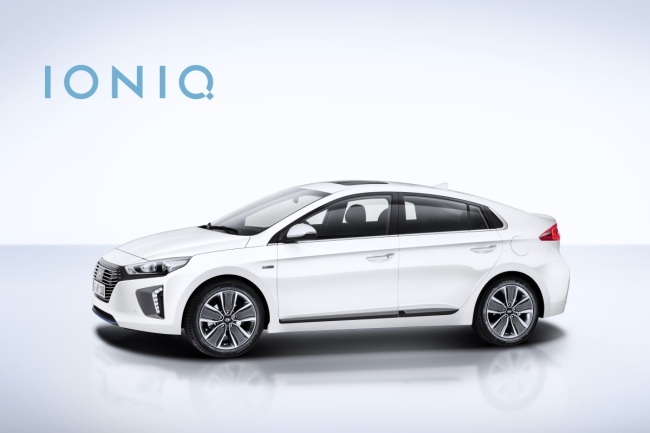Hyundai Motor is developing solid-state batteries that are safe from explosions for its electric vehicles, and reportedly owns pilot-scale battery production facilities, sources close to the matter said, comparing the move to a similar approach taken by the automaker’s Japanese rival Toyota.
“Hyundai is developing solid-state batteries through its Namyang R&D Center’s battery precedence development team and it has secured a certain level of technology,” the source told The Korea Herald.
 |
Hyundai Motor’s electric vehicle Ioniq (Hyundai Motor) |
The Korean automaker is developing the new technologies on its own, without partnering with local industry specialist such as Samsung SDI or LG Chem, according to the source.
Solid-state batteries are the next generation of batteries being developed by battery makers, including Samsung SDI and LG Chem, to replace lithium-ion batteries currently used in most smartphones and electric cars.
Since solid-state batteries are made of solid electrolytes instead of liquid electrolytes, it has a significantly lower risk of ignition or explosion. A battery usually explodes when the liquid inside flows out and reaches air or water outside.
“The approach of Hyundai Motor’s development of the solid-state battery is similar to Toyota, which also owns its production facilities,” the source said.
Toyota plans to commercialize solid-state batteries around 2020 with its own manpower and production facilities, although experts view it may require more time. The Japanese automaker has around 200 engineers developing solid-state batteries at its Higashi Fuji Technical Center, compared to the less than 30 engineers at Hyundai Motor.
Hyundai Motor reportedly has a pilot scale production line for the batteries and it may also have its own production facilities in the future, like Toyota, if necessary, the source said.
Choi Jung-deok, an analyst at LG Economic Research Institute, said that while it is still a distant future and uncertainties remain, “if automakers are able to succeed the mass production of next-generation batteries, the paradigm of batteries in the future may be shifted.”
Industry sources said Hyundai may be able to mass produce the solid-state batteries around or after 2025. In such a scenario and considering the five-year cycle of car production, the battery should be completed around 2020.
Conventional battery makers including Samsung SDI and LG Chem are taking a more cautious approach. Although they are developing solid-state batteries, they may unveil solid-like batteries first, which have some liquid electrolytes, instead of directly mass producing solid-state batteries. Solid-like batteries are safer than lithium-ion batteries and easier to produce than solid-state batteries.
Both Samsung SDI and LG Chem confirmed they are developing the technologies, but declined to comment as to the current development level of the technologies.
Cho Woo-seok, a researcher at Korea Electronics Technology institute’s Advanced Batteries Research Center, said, “Solid-state batteries are safer than conventional batteries because of the lower risk of explosion. Although diverse next-generation batteries are being developed now, a solid-state battery is likely to come to the market rapidly.”
By Shin Ji-hye (
shinjh@heraldcorp.com)








